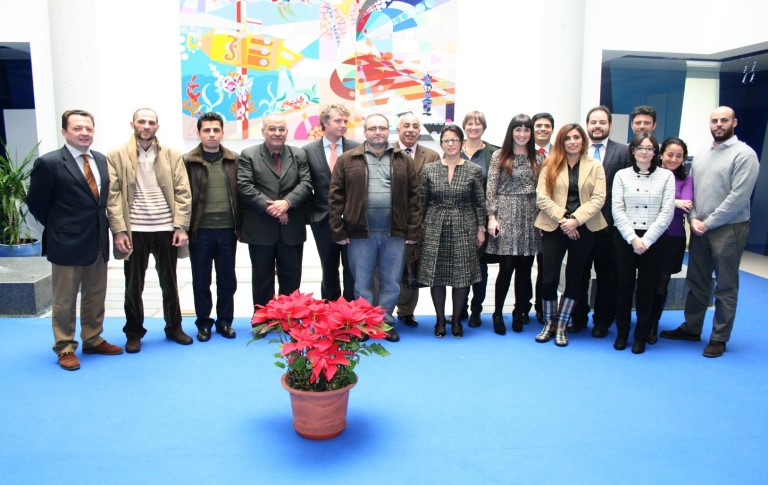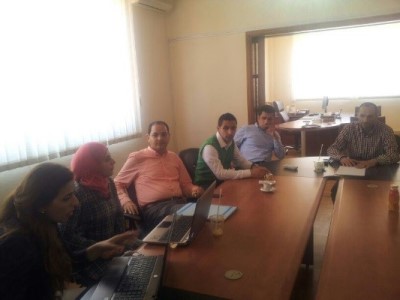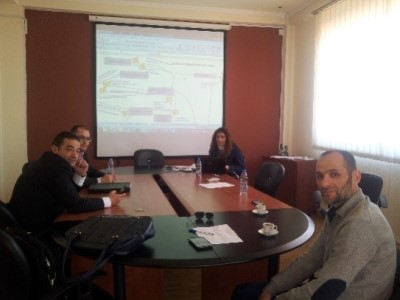Tripoli port toward a better future
Port of Tripoli is considered among the most important ports on the eastern basin of the Mediterranean Sea due to its strategic location as a link between the East and the West. It is the second most vital port in Lebanon after the Port of Beirut. It has an approximate area of Three Million m2, with a water area of 1,500,000 m2, a land area of 950,000 m2, and a 550,000 m2 dump area adjacent to the current port, reserved for the future Special Economic Zone.
The Port currently has 2 basins and 7 berths (1000m,number 2-8) with depths varying from 8 to 10 meters and a new quay 600 mlong(number1) with 15.2 m depth. The Port receives about 450 ships every year, with an average of 37 ships per month. Most ships carry general goods and dry discharge such as iron, wood, and sugar, various kinds of beans, iron scrap, vehicles, and construction materials. The location of the port is 80 Km away from the capital Beirut and only 30 km from the border with Syria. The Port of Tripoli plays a pivotal role in a very active transit activity and thus is a main access key to the Gulf and the Arab World.
Tripoli port has been granted an international certificate in quality management system “ISO 9001”. Currently, OEPT integrates a new management systems related to Environmental and Occupational Health & Safety (ISO 14001:2004 & OHSAS 18001:2007).
Port of Tripoli is participating as a partner in the “Strategic Mediterranean ports Sustainability & Efficiency in Intermodal Synchronization” MEDPORTS project which is co-financed by the multilateral cross-border cooperation "Mediterranean Sea Basin Program". The duration of the project implementation is set to 24 months.
MEDPORTS project aims to increase the ports sustainability and efficiency in intermodal synchronization in Mediterranean region (ENPI CBC MED region).The specific objective of MEDPORTS is to analyze efficient and sustainable technical solutions to optimize time of synchronization of intermodal freight exchange minimizing the permanence of goods in the Mediterranean Basin ports and providing a higher level of services (quality, safety, delivery time, etc.) to the different actors of the supply chain. The partners involved in this project are IAT (Andalusian Institute of Technology) & UCA (University of Cadiz) from Spain, OEPT (Office d’Exploitation du Port de Tripoli) & BIAT (Business Incubation Association in TRIPOLI) from Lebanon and BAU (Al Balqa Applied University) from Jordan and the associates participating in the project are APS (Port Authority of Seville), POA (Port of Aqaba) and CNC-LOGISTICA (National Center of Excellence in Logistics).
In January 2014, the kick of meeting of MEDPORTS project was held in IAT (Seville, Spain) where each partner introduced his organization and discussed the project’s work plans. Finally, all partners agreed on the framework of this project in order to reach the objectives and expected results.

MEDPORTS project is going forwards in its technical work package about analysis of intermodal logistics processes of the participating ports (Port of Tripoli, Port of Seville and Port of Aqaba). OEPT has selected the study of dry bulk import process. Therefore, many prepared questionnaires by the Applicant IAT were filled with the aid of the involved agents (shipping agent, customs broker, freight forwarder…) in order to define the flow of this process and create a data base for the elaboration of VSM (Value Stream Mapping).


During April 2014, BIAT visited port of Tripoli, where different technical meetings were held in order to verify the data collected and to complete the development of VSM. Currently, a time study of VSM processes is prepared to determine waste of time and bottlenecks in order to improve the activities of dry bulk import process.



